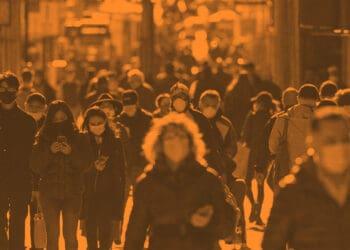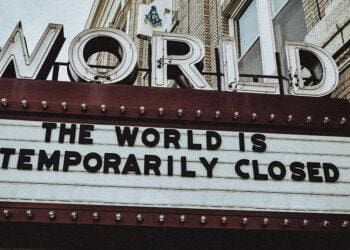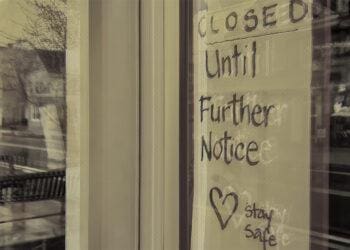Character is magnified in a crisis. As the coronavirus crisis has unfolded, we’ve seen lots of heroic efforts, but also lots of selfishness. Calvin London offers some takeaways for the compliance practitioner from these troubled times.
Australia, like many other countries in the world, is in a long battle with an invisible foe: COVID-19. As infection rates climb and the harsh reality of the situation becomes more apparent, the behavior of the average person (and in particular their degree of ethics) is being challenged. There is a fine line between control and chaos, and this pandemic is highlighting the difference.
My own backyard (Victoria, Australia) has just announced that they are going into shutdown. Australia is nowhere near as badly off as many other countries; Italy and the U.K. quickly come to mind. I am not here to criticize actions of government or to cast judgment, but my experience has revealed some interesting aspects of compliance, behavior and ethics. In particular, there are three aspects I would like to draw on:
- What happens in a crisis situation when only half the story is provided;
- How a lack of knowledge and concern (read: lack of compliance) leads to further restrictions; and
- There are still a large number of people who can’t help but try and benefit at the expense of others.
Half the Story Causes Twice the Panic
In Victoria, people started to think something major was happening when the state government and race officials cancelled the Grand Prix in March. The result heightened the average person’s panic response. Prior to this, the first signs of panic were (bizarrely) the sudden panic buying of toilet paper and any other form of paper good. Panicked by rumors that the country was going to go into shutdown, it appeared that while food could wait, control over our bodily functions was in immediate danger (hence the title). People went out and bought every toilet paper roll in sight for fear of being in lockdown without a year’s supply of toilet paper. I know of one person who actually bought over 250 rolls!
On the lighter side, one Australian newspaper with a reputation for producing “light relief” in times of trouble (which I will not go into here) actually printed an extra eight pages to be used as toilet paper.
What was the motivation for these actions?
Although runs on food items – long-life milk, pasta and rice – quickly followed, creating further shortages, it all started with toilet paper. Experts say that it was all about having control. Apparently, the same thing happened in the Queensland floods. Panic buying like this is a symptom of being placed in an unfamiliar position with incomplete information; a feeling of loss of control quickly leads to chaos. For compliance folks, the lesson here is that if you have to deliver bad news or news of a significant change, you’ll have the greatest success when people have the complete picture.
A Lack of Compliance Will Lead to More Rules
We are now discovering that an important aspect in the fight against this virus is containment and social distancing. In many countries, this has been rigorously enforced as infection levels and death tolls climbed to unacceptable levels. Even with the announcement that the sacred game of “Aussie rules” football (which, for many Australians, is their reason for existence through the winter months – much like American football or English soccer) was to be suspended, Australians still did not get the message that compliance with the rules in place for social distancing and cessation of group gatherings was essential. As a result, the government enforced new rules associated with social gatherings and the closure of clubs, pubs, entertainment venues and other nonessential businesses.
It may be easy to say some people did not understand the severity of the situation, but it cannot be avoided that a large percentage of the population simply does not care or does not feel the rules apply to them. Consider the people who flocked to Sydney’s popular Bondi beach on the weekend and clearly ignored the guidance on social distancing. Once again, as compliance officers, this is all too familiar; a few bad eggs ruin it for others.
More police officers are now being deployed onto the streets to enforce the isolation of those who have tested positive for the virus and to reinforce the new rulings for social isolation in public. There is also an interesting compliance lesson in this regard. In countries where there have been prior atrocities – Japan and Singapore, for example – there seems to be broader acceptance of change rules, or maybe it is a cultural difference. In countries such as Australia, which has been relatively free of atrocities (the latest bushfires being an exception), people have responded with panic. This has been complicated by incomplete communication and inconsistent messages, but there is a lot to be said for experience in adversity.
On the other side of the coin, there is a great story from a tiny Italian town: In the town of Veneto, the value of compliant behavior has been demonstrated where, through strictly enforced isolation of those testing positive and the populace’s compliant response, they have reduced their infection rate from 3 percent to 0.4 percent. This was achieved through no mess, “no excuses” compliance. They insisted on testing everyone and isolating those who tested positive for a minimum of 14 days.
The Unethical Behavior of Some People
At the start of this article, I referenced the panic buying of items such as toilet paper. Some who indulged in panic buying have now seen the error of their ways, whether because they ran out of storage, suddenly developed a guilty conscience or found some other reason to part with their “fool’s gold,” they have been broadsided. One of the leading supermarket chains has changed its refund policy not to honor returns of these goods.
As in all compliance, there is an even more sinister group of people who were trying to profiteer off the paper that had been bought, trying to sell it on eBay or privately in small shops for inflated prices, sometimes in excess of 1,000 percent. These actions by ruthless, unethical people have spread to more important items, such as major food items like meat and even medications.
While I try to see the good in people, I am all too often reminded of that group of people who can only be described as unethical (and I have written about this in CCI before). This element of the population is a constant reminder of the struggle that we have at the very basic level of human behavior. For every good soul there, will be another who is ready to take advantage of compromising situations.
Life under shutdown will test the integrity and ethics of the average person in ways they have never imagined. As compliance officers who are used to dealing with people who often do not know why they should do the right thing – or, on the other side of the coin, who don’t care about doing the right thing – we can use our skills to assist in helping. One such way is to explain the reasons restrictions are in place and the consequences that will follow if we don’t comply with them. “We need to be considerate or people will die,” as the Premier of Victoria stated.
Now if anyone has any toilet paper…



 Calvin London, Ph.D., is the Founder and Principal consultant at
Calvin London, Ph.D., is the Founder and Principal consultant at 








